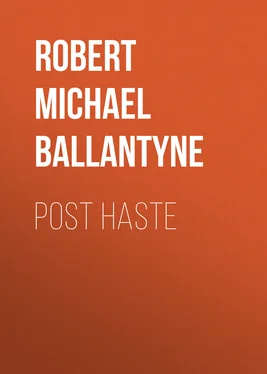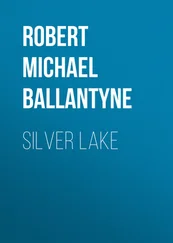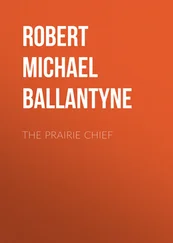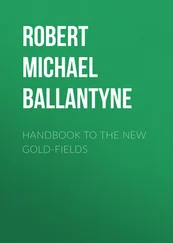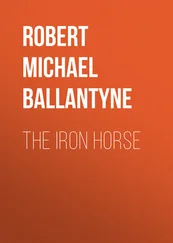Robert Michael Ballantyne - Post Haste
Здесь есть возможность читать онлайн «Robert Michael Ballantyne - Post Haste» — ознакомительный отрывок электронной книги совершенно бесплатно, а после прочтения отрывка купить полную версию. В некоторых случаях можно слушать аудио, скачать через торрент в формате fb2 и присутствует краткое содержание. Жанр: foreign_children, literature_19, foreign_antique, foreign_prose, на английском языке. Описание произведения, (предисловие) а так же отзывы посетителей доступны на портале библиотеки ЛибКат.
- Название:Post Haste
- Автор:
- Жанр:
- Год:неизвестен
- ISBN:нет данных
- Рейтинг книги:5 / 5. Голосов: 1
-
Избранное:Добавить в избранное
- Отзывы:
-
Ваша оценка:
- 100
- 1
- 2
- 3
- 4
- 5
Post Haste: краткое содержание, описание и аннотация
Предлагаем к чтению аннотацию, описание, краткое содержание или предисловие (зависит от того, что написал сам автор книги «Post Haste»). Если вы не нашли необходимую информацию о книге — напишите в комментариях, мы постараемся отыскать её.
Post Haste — читать онлайн ознакомительный отрывок
Ниже представлен текст книги, разбитый по страницам. Система сохранения места последней прочитанной страницы, позволяет с удобством читать онлайн бесплатно книгу «Post Haste», без необходимости каждый раз заново искать на чём Вы остановились. Поставьте закладку, и сможете в любой момент перейти на страницу, на которой закончили чтение.
Интервал:
Закладка:
“It is a jar, cousin, which contains the substances which produce electricity.”
“Well, well,” rejoined Miss Lillycrop, dipping the sugar-spoon into the slop-bowl in her abstraction, “this world and its affairs is to me a standing miracle. Of course I must believe that what you say is true, yet I can no more understand how electricity is made in a jar and sent flying along a wire for some hundreds of miles with messages to our friends than I can comprehend how a fly walks on the ceiling without tumbling off.”
“I’m afraid,” returned May, “that you would require to study a treatise on Telegraphy to comprehend that, but no doubt Phil will soon get it so clearly into his head as to be able to communicate it to you.—You’ll go to the office with me on Monday, won’t you, Phil?”
“Of course I will—only too glad to begin at once.”
“My poor boy,” said May, putting her hand on her brother’s arm, “it’s not a very great beginning of life to become a telegraph-messenger.”
“Ah! now, May, that’s not like yourself,” said Phil, who unconsciously dropped—perhaps we should say rose—to a more decided brogue when he became tender or facetious. “Is it rousin’ the pride of me you’d be afther? Don’t they say that any ould fiddle is good enough to learn upon? Mustn’t I put my foot on the first round o’ the ladder if I want to go up higher? If I’m to be Postmaster-General mustn’t I get a general knowledge of the post from the bottom to the top by goin’ through it? It’s only men like George there that can go slap over everything at a bound.”
“Come, Phil, don’t be impertinent,” said George, “it’s a bad sign in one so young. Will you convoy me a short way? I must go now.”
He rose as he spoke and bade Miss Lillycrop good-evening. That lady expressed an earnest hope that he would come to see her frequently, and he promised to do so as often as he could find time. He also bade May good-evening because she was to spend the night with her cousin, but May parted from him with the same touch of reserve that marked their meeting. He resented this by drawing himself up and turning away somewhat coldly.
“Now, Phil,” he said, almost sternly, on reaching the street, “here’s a letter to Sir James Clubley which I want to read to you.—Listen.”
By the light of a lamp he read:—
“ Dear Sir ,—I appreciate your kindness in offering me the situation mentioned in your letter of the 4th, and especially your remarks in reference to my late father, who was indeed worthy of esteem. I shall have pleasure in calling on you on hearing that you are satisfied with the testimonials herewith enclosed.—I am, etcetera.”
“Now, Phil, will that do?”
“Do? of course it will. Nothing could be better. Only—”
“Well, what?”
“Don’t you think that you might call without waiting to hear his opinion of your testimonials?”
“No, Phil, I don’t,” replied the other in a slightly petulant tone; “I don’t feel quite sure of the spirit in which he referred to my dear father. Of course it was kind and all that, but it was slightly patronising, and my father was an infinitely superior man to himself.”
“Well, I don’t know,” said Phil; “if you’re going to accept a favour of him you had better try to feel and act in a friendly way, but of course it would never do to encourage him in pride.”
“Well then, I’ll send it,” said Aspel, closing the letter; “do you know where I can post it?”
“Not I. Never was here before. I’ve only a vague idea of how I got here, and mustn’t go far with you lest I lose myself.”
At that moment Miss Lillycrop’s door opened and little Tottie issued forth.
“Ah! she will help us.—D’you know where the Post-Office is, Tottie?”
“Yes, sir, it’s at the corner of the street, Miss Lillycrop says.”
“Which direction?”
“That one, I think.”
“Here, I’m going the other way: will you post this letter for me?”
“Yes, sir,” said Tottie.
“That’s a good girl; here’s a penny for you.”
“Please, sir, that’s not a penny,” said the child, holding out the half-crown which Aspel had put in her hand.
“Never mind; keep it.”
Tottie stood bereft of speech at the youth’s munificence, as he turned away from her with a laugh.
Now, when Tottie Bones said that she knew where the post was, she did so because her mistress had told her, among other pieces of local information, that the pillar letter-box stood at the corner of the street and was painted red; but as no occasion had occurred since her arrival for the posting of a letter, she had not yet seen the pillar with her own eyes. The corner of the street, however, was so plain a direction that no one except an idiot could fail to find it. Accordingly Tottie started off to execute her mission.
Unfortunately—or the reverse, as the case may be—streets have usually two corners. The child went, almost as a matter of course, to the wrong one, and there she found no pillar. But she was a faithful messenger, and not to be easily balked. She sought diligently at that corner until she really did find a pillar, in a retired angle. Living, as she did, chiefly in the back slums of London, where literary correspondence is not much in vogue, Tottie had never seen a pillar letter-box, or, if she had, had not realised its nature. Miss Lillycrop had told her it was red, with a slit in it. The pillar she had found was red to some extent with rust, and it unquestionably had a slit in it where, in days gone by, a handle had projected. It also had a spout in front. Tottie had some vague idea that this letter-box must have been made in imitation of a pump, and that the spout was a convenient step to enable small people like herself to reach the slit. Only, she thought it queer that they should not have put the spout in front of the pillar under the slit, instead of behind it. She was still more impressed with this when, after having twice got on the spout, she twice fell off in futile efforts to reach round the pump with her small arms.
Baffled, but not defeated, Tottie waited till some one should pass who could put the letter in for her, but in that retired angle no one passed. Suddenly her sharp eyes espied a brickbat. She set it up on end beside the pump, mounted it, stood on tip-toe, and, stretching her little body to the very uttermost, tipped the letter safely in. The brickbat tipped over at the same instant and sent her headlong to the ground. But this was no novelty to Tottie. Regardless of the fall, she gathered herself up, and, with the light heart of one who has gained a victory in the performance of duty, ran off to her miserable home in the back slums.
Chapter Seven.
Phil Begins Life, and Makes a Friend
Some time after the small tea-party described in our last chapter, Philip Maylands was invested with all the dignity, privileges, and emoluments of an “Out-door Boy Telegraph Messenger” in the General Post-Office. He rejoiced in the conscious independence of one who earns his own livelihood, is a burden to nobody, and has something to spare. He enjoyed the privilege of wearing a grey uniform, of sitting in a comfortable room with a huge fire in the basement of the office, and of walking over a portion of London as the bearer of urgent and no doubt all-important news. He also enjoyed a salary of seven shillings sterling a week, and was further buoyed up with the hope of an increase to eight shillings at the end of a year. His duties, as a rule, began at eight each morning, and averaged nine hours.
We have said that out of his vast income he had something to spare. This, of course, was not much, but owing to the very moderate charge for lodging made by Solomon Flint—with whom and his sister he took up his abode—the sum was sufficient to enable him, after a few months, to send home part of his first year’s earnings to his mother. He did this by means of that most valuable institution of modern days a Post-Office order, which enables one to send small sums of money, at a moderate charge, and with perfect security, not only all over the kingdom, but over the greater part of the known world.
Читать дальшеИнтервал:
Закладка:
Похожие книги на «Post Haste»
Представляем Вашему вниманию похожие книги на «Post Haste» списком для выбора. Мы отобрали схожую по названию и смыслу литературу в надежде предоставить читателям больше вариантов отыскать новые, интересные, ещё непрочитанные произведения.
Обсуждение, отзывы о книге «Post Haste» и просто собственные мнения читателей. Оставьте ваши комментарии, напишите, что Вы думаете о произведении, его смысле или главных героях. Укажите что конкретно понравилось, а что нет, и почему Вы так считаете.
